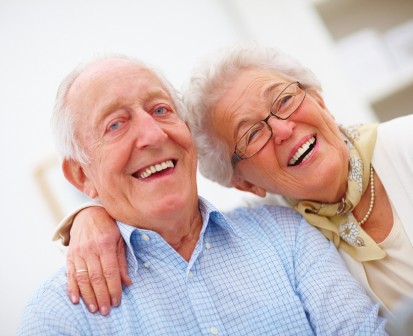Dehydration in Elderly People
Signs and Symptoms
by Nancy Hearn, CNC
Note: As an Amazon Associate I earn from qualifying purchases.
Similar to young children, acute dehydration in elderly adults is common due to their higher susceptibility. Some of the reasons for this include:
Many have lost their thirst signal. Thus, they simply won’t drink water because they don’t feel thirsty, even though they may be severely dehydrated
- Many people who are elderly have kidneys that do not work as well as they used to
- Some choose not to drink because of incontinence
- Others take medications or diuretics that increase urine output
- Some have pain or other physiological reasons why it is difficult to either get up to get a drink of water or to hold a glass
- Many simply don’t understand the importance of drinking fluids.
Symptoms of Acute Dehydration
According to the National Institutes of Health, symptoms of dehydration in elderly people may include the following:
- Dry or sticky mouth
- Little or no urine output
- Dark yellow urine
- Lack of tear production
- Lethargy
- Sunken eyes
Symptoms of Chronic Dehydration
Chronic dehydration is even more prevalent in elderly people, for a number of reasons. The following are some of the common symptoms:
- Fatigue. Tiredness is one of the earliest signs of chronic dehydration. Most people think that food is the main source of energy in the body, but water is actually the most important energy source.
- Constipation. Without adequate water, wastes move through the large intestines much more slowly. In fact, sometimes they don’t move at all causing constipation.
- High blood pressure. Our blood is normally about 94 percent water when the body is fully hydrated. When dehydrated, the blood is thicker causing resistance to blood flow, which thus can raise blood pressure.
- High cholesterol. When your body is dehydrated, it will produce more cholesterol to seal off water loss from the cells.
- Digestive disorders. The body needs an adequate supply of water to produce a wide array of digestive juices. A shortage of mineral-rich filtered water can lead to a host of digestive disorders, including ulcers, gastritis and acid reflux.
- Asthma and allergies. One of the ways your body rations water when dehydrated is by restricting airways. Respiratory problems are key symptoms of chronic dehydration.
- Weight gain. When cells are depleted of water for energy, they then have to rely on energy generation from food. Thus people tend to eat more when dehydrated.
- Skin disorders. Dehydration impairs the elimination of toxins through the skin and makes it more vulnerable to skin disorders such as psoriasis, dermatitis and discoloration.
- Joint pain or stiffness. All joints have cartilage padding, and the cartilage itself is composed mainly of water. When dehydrated, cartilage is weakened and joint repair is slow.
- Premature aging. Your skin will most likely wrinkle prematurely if you are chronically dehydrated. In addition, the same wrinkling and withering effect on the internal organs.
Prevention and Treatment
When healthy, learn to drink at least 6 to 10 glasses of water a day. Drink more when you are exercising or sweating due to warmer weather.
At the earliest signs of illness, begin to drink more fluids, understanding that your fluid needs are greater during an illness, especially if accompanied by fever, diarrhea or vomiting.
Do NOT wait for the symptoms of dehydration to appear before drinking fluids.
If mild to moderate symptoms of dehydration do appear, replenishing fluids will often be sufficient treatment.
However, for moderate to severe dehydration, hospitalization and intravenous fluids may be necessary for elderly adults to quickly replenish fluids lost.
Untreated severe dehydration can cause brain damage, seizures or even death.
Thus, it is important to take it seriously and call the doctor, especially when symptoms are present with vomiting and diarrhea.
Reference
Parentgiving.com; Dehydration: A Hidden Risk to the Elderly
Further reading . . .
Dehydration Symptoms: Mild, Moderate, Severe
Return from Dehydration in Elderly Adults to Dehydration Effects

If you would like to reproduce or republish this article or any other article on this site, feel free to do so but please include a reference or link to the article at WaterBenefitsHealth.com.
Sign Up for Our Monthly
Newsletter
Visitor Comments
"This was the best and most straight forward info on the net yet. I asked a question and got an answer that made sense. Thank you so much!" - Linderlinder
FINALLY!!! I have been wondering about this for years with no 'solid' answer. This is exactly what I've been wanting to know! Thank you for this share..." by Andy
"Thank you for the information, Nancy. I appreciate it. Your article and findings are very helpful, referring to dehydration." - Carolyn
"Lemon water is one drink both my wife and I can't drink. It upsets our stomachs. We are in our sixties and in very good health—well, better health now that we drink about 2 liters plus of water each day. It has made so much difference to our digestive systems and recovery every day. Thank you for your website and effort." - Rod



